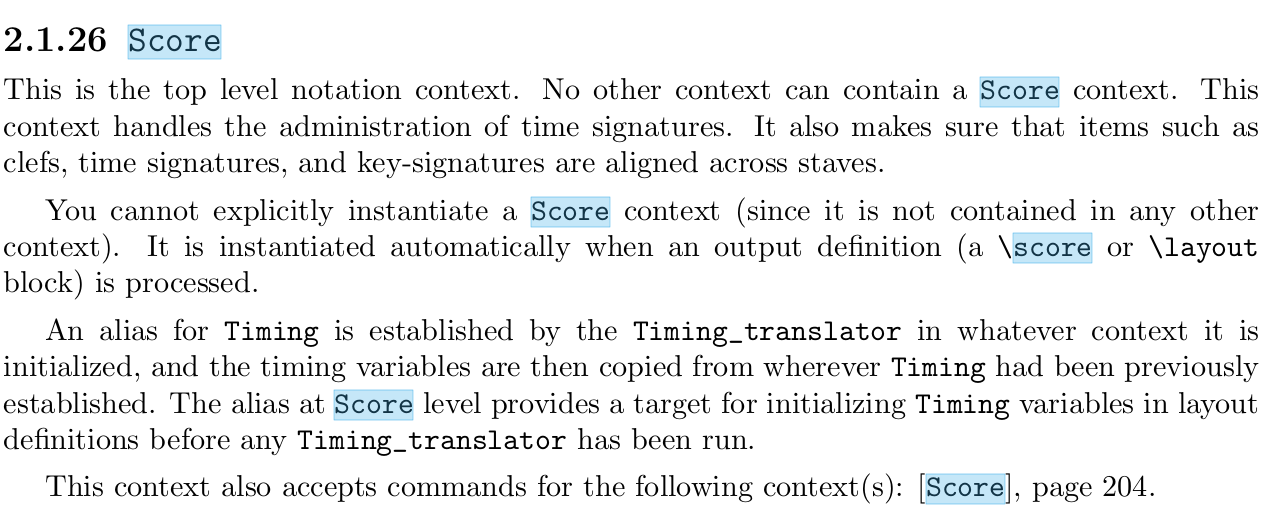[Date Prev][Date Next][Thread Prev][Thread Next][Date Index][Thread Index]
Re: Problems with `@anchor` and `@xrefautomaticsectiontitle`
|
From: |
Werner LEMBERG |
|
Subject: |
Re: Problems with `@anchor` and `@xrefautomaticsectiontitle` |
|
Date: |
Sat, 20 Feb 2021 14:59:46 +0100 (CET) |
>> The problem:
>> In the anchor reference the corresponding section reference title
>> is shown. IMHO, this doesn't make much sense because it loses
>> context – in the example above, how shall the reader know that
>> she has to look for 'blubb'? A better solution is to use the
>> anchor node name if #3 of `@xref` is missing, inspite of
>> `@xrefautomaticsectiontitle on`.
>>
>> Note that for automatically generated `@xref` entries (as we have
>> in LilyPond's 'Internal Reference' manual) it is not possible to
>> manually provide a third argument; it would be thus quite
>> valuable if the default could be improved.
>
> Why can't the third argument be automatically generated as well? It
> seems inconsistent to use the anchor name in cross-references while
> not using node names in cross-references.
The problem is that LilyPond's xref generator doesn't know whether the
target is a `@node` or an `@anchor`. Always generating the third
argument automatically is essentially the equivalent to
@xrefautomaticsectiontitle off
which gives worse optical results.
Attached you can see our real use-case. On page 204 there is a
description of the 'Timing' context. Since this LilyPond 'context' is
defined in a different way compared to other contexts, causing the
document generator to not create a separate subsection, I have to
manually insert an `@anchor` command in the documentation string.
The last line of the image is auto-generated by the documentation
generator (iterating over a Scheme list with a single element,
`Timing`):
This context also accepts commands for the following context(s):
@ref{Timing}.
> Moreover in most books if you saw a reference "see blub" you would
> be looking for a heading on the page "blub" which may not always
> exist for an @anchor.
As I told before, this is not a normal book but an auto-generated
documentation.
Anyway, I think it makes sense to change the one-argument `@xref` and
friends to produce a better default.
Werner

